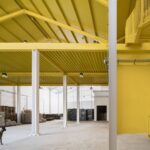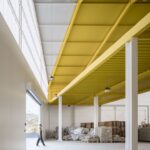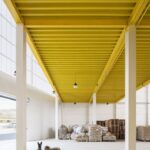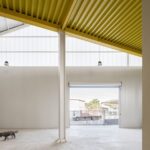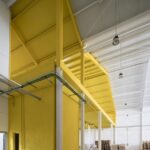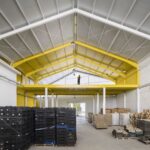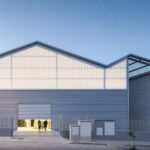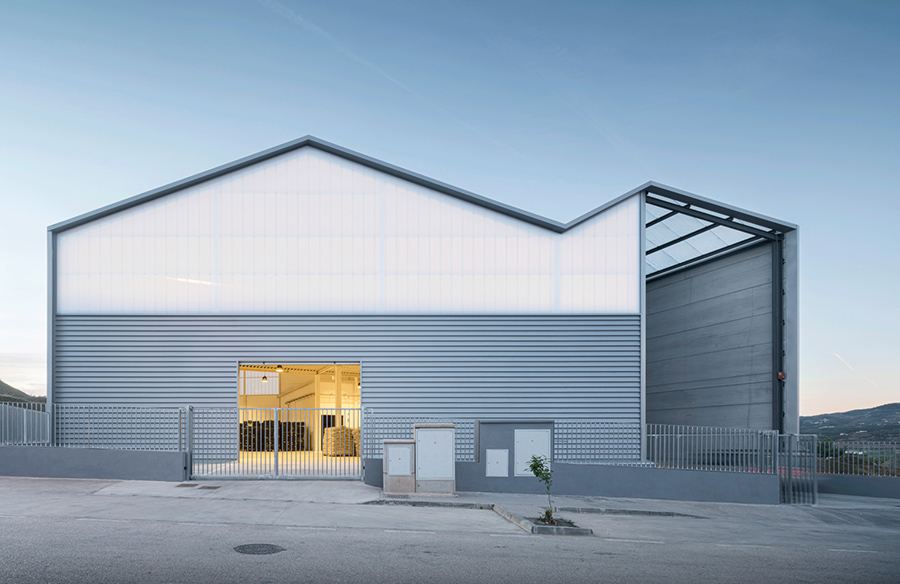
Introduction
The Fruits and Vegetables Center Raspa y Amagado, nestled in the picturesque region of Axarquia, pays homage to the rich agricultural heritage of Málaga, Spain. Designed by FORarquitectura and completed in 2022, this industrial marvel stands as a testament to the timeless traditions of dedicated farmers.
Architectural Inspiration
Rooted in the vernacular architecture of the region, the design of the Fruits and Vegetables Center draws inspiration from the ancestral footprint of Axarquia’s farming community. By embracing traditional forms, strategies, and gestures, the architects have created a building that seamlessly integrates with the surrounding landscape while honoring the past.
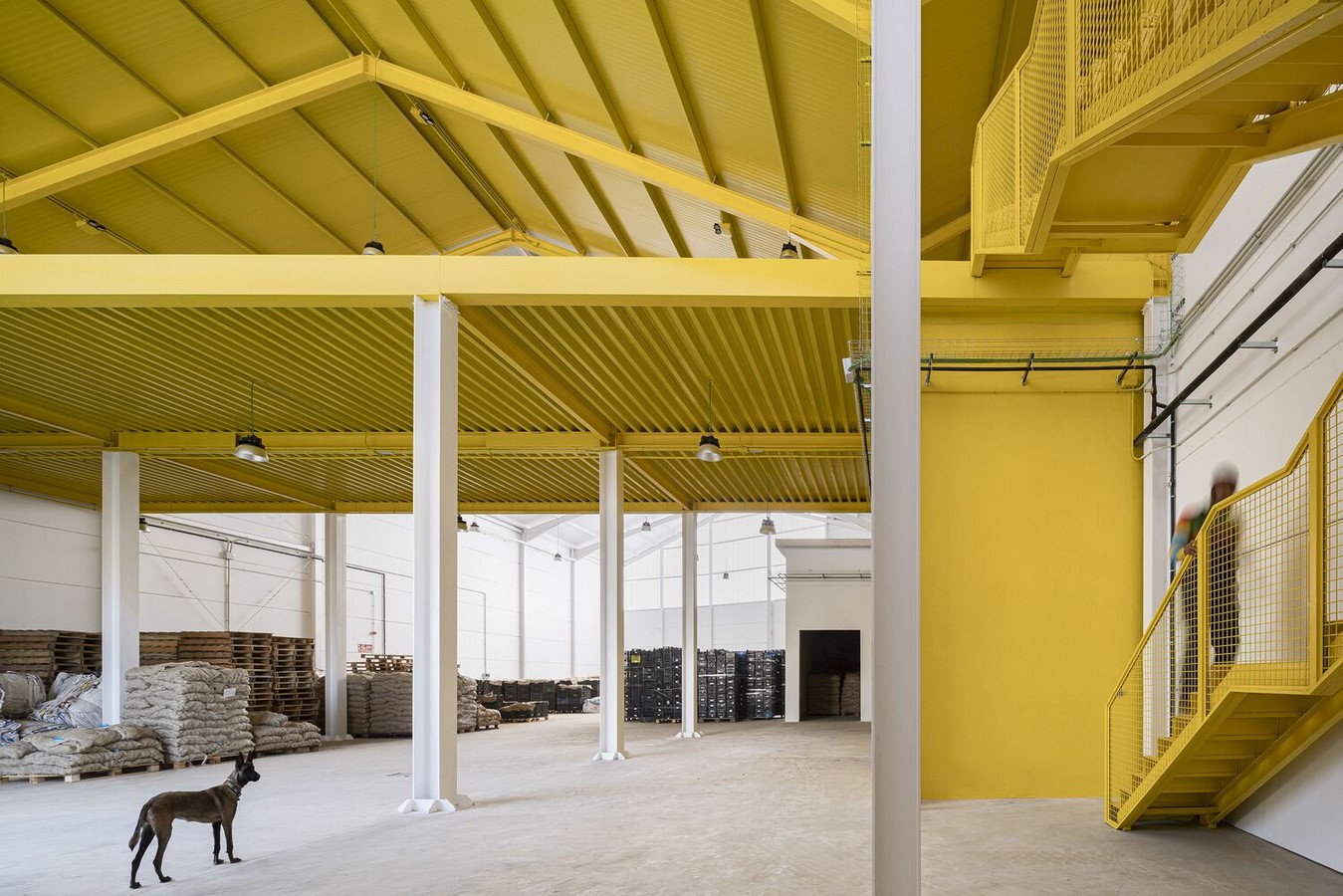
Design Features
Spanning an area of 1125 m², the center comprises four expansive spaces meticulously crafted to accommodate the storage and handling of agricultural products and tools. The volumetric composition reflects traditional architectural forms, ensuring optimal roof water drainage and efficient organization of functional spaces within the facility.
Modern Innovations
While steeped in tradition, the Fruits and Vegetables Center also embraces modern elements to enhance functionality and aesthetics. The introduction of polycarbonate panels in the facade provides ample natural light while offering protection from external elements, reminiscent of the transparency found in agricultural greenhouses.
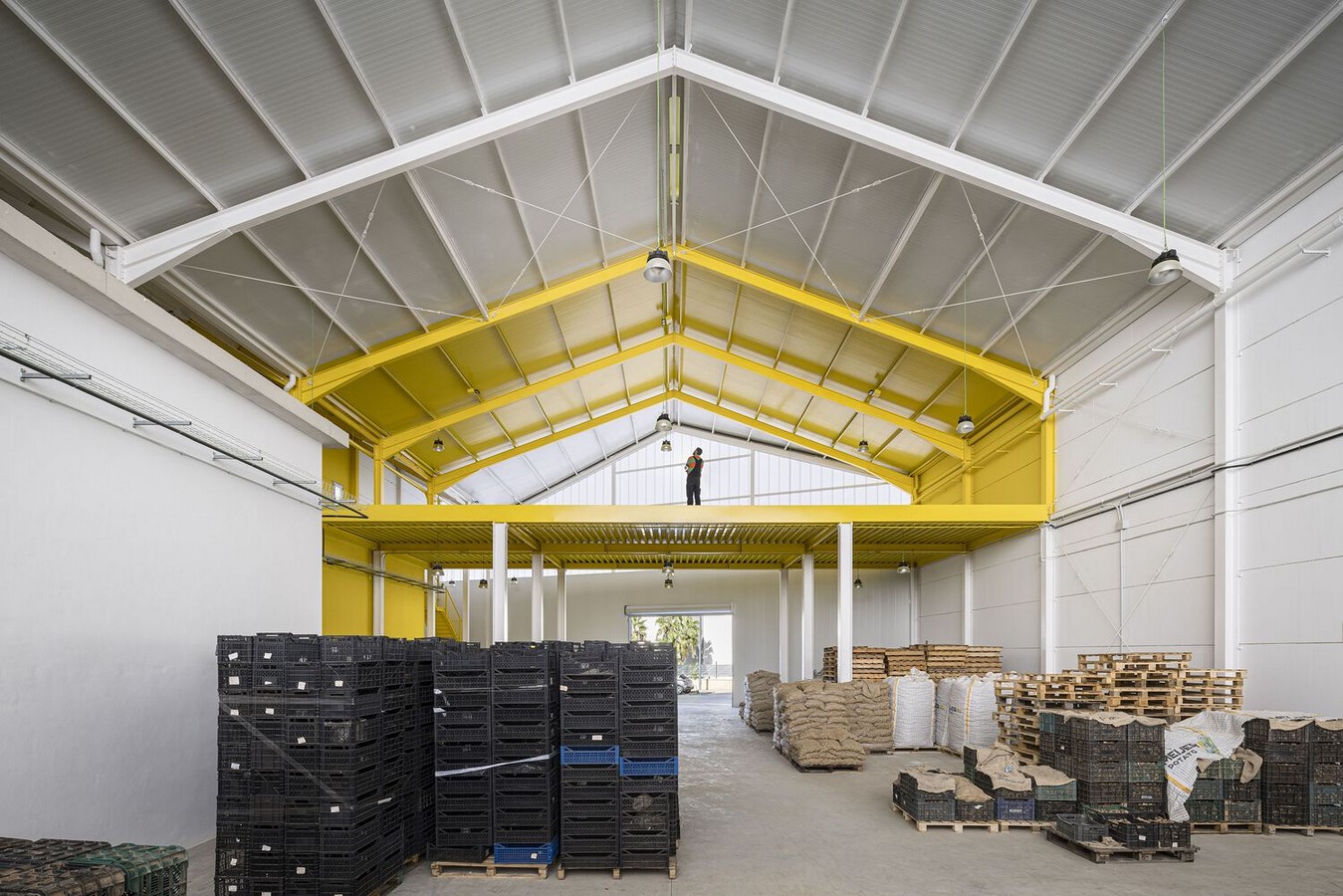
Artistic Flourishes
To infuse the interior with vibrancy and dynamism, the architects have incorporated artistic gestures, such as colorful pictorial frames, that serve as focal points within the nave. These elements not only enliven the space but also celebrate the joy and vitality inherent in agricultural activities.
Conclusion
The Fruits and Vegetables Center Raspa y Amagado stands as more than just an industrial facility; it is a cathedral of light, a sanctuary dedicated to honoring the raw materials that sustain life. With its harmonious blend of tradition and innovation, this architectural masterpiece serves as a beacon of inspiration, reimagining the role of industrial architecture in Málaga’s cultural landscape.




